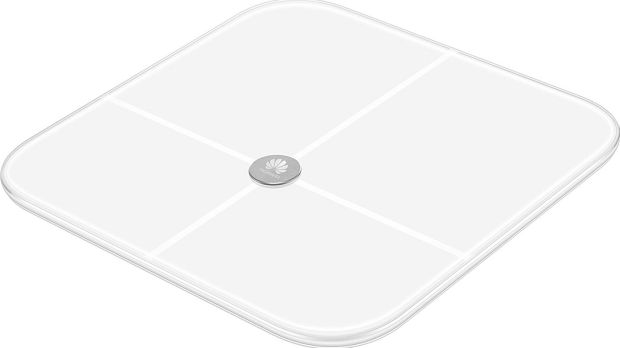
Huawei Body Fat Scale is simple yet powerful - and more importantly, accurate.
Smart health devices seem like a great idea. Connected to your smartphone, they will beam all your vital statistics to the cloud so you can keep track of your progress, send them on to your healthcare provider if needed, and generally get an insight into how your body works.
But what happens when the scale suddenly becomes obsolete? What if the company making it decides they will no longer support the scale, or the app it depends on? Speaking from experience, you can keep using it as is, until it needs to be reset and suddenly it can no longer be connected to the wifi. And then, because you can’t get past the set-up screen on the scale, it can’t even be used as a standard scale, so it’s essentially a large paper weight.
Fabulous.
So after being burned once, why would you go back again? Simply because there are better options.
The Huawei AH100 Body Fat Scale can be used out of the box as a standard weighing scale. You don’t need to connect it for that, but if you want a simple weighing scale, there are cheaper options out there. It looks good, mind you, with a white, tempered glass surface and an easily readable display.
The real power of the Huawei scale comes with the app. When you connect your scale to the Huawei Health app, you can track your weight, body fat, how much of your body mass is fluids, muscle mass, calculate your basal metabolic rate, bone mineral content, visceral fat and body protein.
Do you need to know all this? Maybe not. But like most smart health devices out there, you get a lot more information than you need and you just take what you need.
Once you download the app and connect the device to your phone via Bluetooth, you select start measurement, stand on the scales and let the device do its thing. A small Bluetooth symbol on the scale’s display will let you know that it’s connected. The measurements are sent instantly; once the weight has been registered, you spend a few more seconds on the scale to allow it to analyse your body composition.
According to Huawei, the scale uses bioelectrical impedance analysis technology, to do all this. If all this doesn’t make much sense, all you need to know is that you step on it and the scale will use its technology to deduce what percentage of you is fluid, bone, body fat and so on.
You won’t see the extra information on the scale, which just displays weight and body fat. You need to go to the app to see your bone density and so on. There is also a small explanation of what each measurement is. However, it would have been helpful to include some information on what was a normal rating for some of the measurements, as it wasn’t very clear if the readings were good, bad or indifferent.
The scale itself was accurate – tested with two different sets of weights – so there were no concerns there.
Because it’s Bluetooth, it eliminates the automatic upload you get with wifi scales. On more than one occasion I checked a health app to find I’d suddenly lost 40kg overnight – the culprit turned out to be my toddler, who was fascinated with the “light up circle” in the bathroom. You can have up to 10 people registered on the app, which should cover most households more than adequately.
The good
Without the app, the Huawei Body Fat scales will still work. This is important, because if at some stage in the future Huawei decides this smart health thing is not for them, you can continue to use the scale to track your weight.
Because it is Bluetooth rather than wifi, you have to have your phone nearby to sync the scales. Otherwise, the scales will let you assign measurements at a later date. That means you keep control over the data, so no mix-ups with other members of the family, and you don’t have to press various bits of the scale to get your profile active.
The not so good
Whatever about your actual body weight, how accurate are digital scales when it comes to measuring thing like visceral fat or bodily fluids? Who knows. I got two vastly different readings on the same day, which didn’t make much sense. But I suppose the main thing here is to use the readings as a baseline you can follow rather than the gospel truth. That way you can see any changes and track that rather than get worked up about your visceral fat level.
The rest
The Huawei Health app is available for both Android and iOS, so you don’t need a Huawei handset to use the scale.
The verdict
A useful tool for the smart health fan – and one that looks likely to outlive the whims of the manufacturer, at least as a weighing scale.